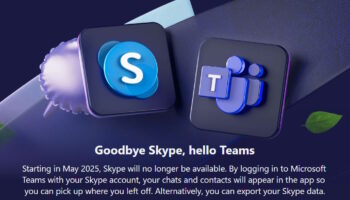The world will break the Zettabyte barrier in 2016

Ghanaian cinema may have already shown us that 2016 is going to be an awesome year, but this week networking technology company Cisco released its Visual Networking Index Forecast which makes some big predictions about data traffic in the year 2016 that are pretty mind-blowing themselves.
Cisco's VNI whitepaper is built upon reputable third-party analyst projections, in-house forecasts, and hard data collection, and it is part of the company's initiative to track the growth of "visual networking," or the use of video as the central communicative and entertainment medium over IP connections, including TV-over-Internet, social video, and video on demand.
In it, Cisco makes a number of noteworthy predictions:
Say, iPad idolaters, don't write the laptop's epitaph just yet

May you live in interesting times. It’s an ancient curse. Or is it a blessing? There are volumes devoted to that age-old issue. In my world, though, there’s nothing gray about this topic. I get paid to answer questions, so interesting times are a blessing. Straight up. When clients don’t have any questions, now that’s a curse.
These are blessed times we live in, my friends. At least it is in my world. It’s hard to believe that it’s only been two years since Apple sold the first iPad. The year before, the tech world marveled at the vitality of the PC. Incredibly, shipments grew in 2009, defying gravity at a time when the rest of the economy seemed to be in a free-fall. My, how things have changed.
XtraFinder 0.5 gives OS X Snow Leopard or Lion more roar

It may not be the sexiest feature in OS X, but there’s little doubt of the importance of Finder to your day-to-day computing. Each iteration of OS X comes and goes, tweaks and refines Finder that little bit more, and yet along come developers who take the Apple ethos that little bit further and find tweaks to make things just work.
Most of these Finder add-ons or plug-ins don’t come free, but if you’re prepared to miss out on some higher end features like tabbed Finder windows, then you can give Finder a welcome shot in the arm for no cost at all with the help of XtraFinder 0.5.
Don't let that software agreement be a devil's deal, try EULAlyzer

You’ve downloaded an interesting new application, and you’re eager to try it out. So it’s hardly a surprise if, when you’re presented with a lengthy and complex licence agreement, you’ll just choose the “Agree” option without even reading it.
Ignoring the EULA does mean you’re missing out on some potentially interesting information, though, as a program’s agreement could reveal how installing it might result in you receiving targeted advertising, spam, or having personal information shared with third parties. Of course you’ll need to pick out these more interesting clauses from the background noise, but if you find that a problem then you can always get a little help from BrightFort’s EULAlyzer.
Microsoft turns on 'Do Not Track' in Internet Explorer 10 by default

In a move that is sure to rankle web advertisers, Microsoft late Thursday disclosed that Internet Explorer will have "Do Not Track" functionality on by default. This will prevent browser data crucial to behavioral and targeted advertising from being sent to third parties and could seriously disrupt the advertising industry in general.
Microsoft is vowing to move ahead despite the complaints of the industry. "While some people will say that this change is too much and others that it is not enough, we think it is progress and that consumers will favor products designed with their privacy in mind over products that are designed primarily to gather their data", IE vice president Dean Hachamovitch says.
Confused yet? NetApps ranks Internet Explorer No. 1 (Microsoft agrees), but StatCounter puts Chrome tops (Google agrees)

The battle of the browsers reached new territory in May, as IE and Chrome directly engaged for the first time. Firefox is collateral damage -- destined to fall to No. 3, whether by Net Applications' or StatCounter's reckoning. Mozilla's open-source champion that took back the web from Microsoft, falls before Chrome's advances. The browser wars are back with a vengeance and the heretofore top two are in retreat. Well, depending on whose counting you believe.
While the top browser, as measured by usage share, may be disputed, Firefox's decline is not. StatCounter put Chrome ahead of Firefox last summer. NetApps has the Mozilla browser and Chrome in a May photo finish -- 19.71 percent and 19.58 percent share, respectively. Given the downward and upward trajectories of both, Google's browser is all but certain to claim second place during June. Firefox's decline is all but inevitable -- that despite Mozilla adopting similar fast-track development that sets both browsers' apart from slow-updating Internet Explorer and Safari.
Most Commented Stories
© 1998-2025 BetaNews, Inc. All Rights Reserved. Privacy Policy - Cookie Policy.




